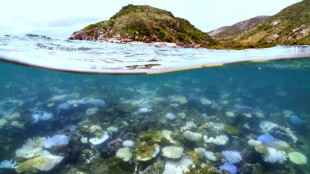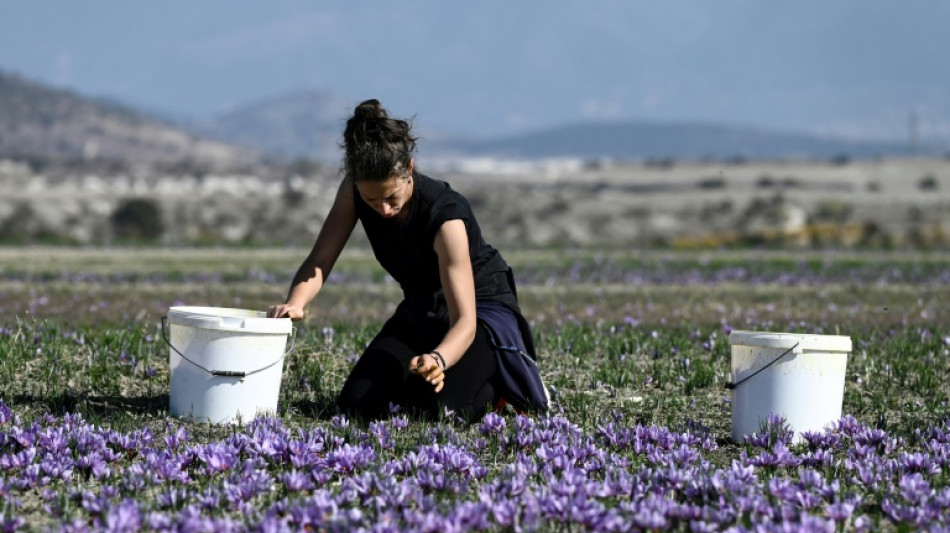
-
 New Bruce Springsteen music set for June 27 release
New Bruce Springsteen music set for June 27 release
-
Tom Cruise pays tribute to Val Kilmer

-
 Mexico president welcomes being left off Trump's tariffs list
Mexico president welcomes being left off Trump's tariffs list
-
Zuckerberg repeats Trump visits in bid to settle antitrust case

-
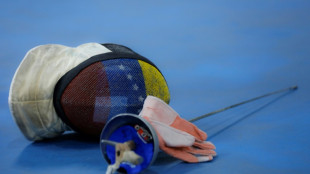 US fencer disqualified for not facing transgender rival
US fencer disqualified for not facing transgender rival
-
'Everyone worried' by Trump tariffs in France's champagne region
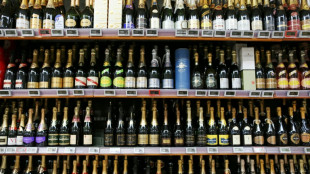
-
 Italy's Brignone suffers broken leg with Winter Olympics looming
Italy's Brignone suffers broken leg with Winter Olympics looming
-
Iyer blitz powers Kolkata to big IPL win over Hyderabad

-
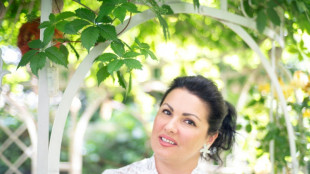 Russian soprano Netrebko to return to London's Royal Opera House
Russian soprano Netrebko to return to London's Royal Opera House
-
French creche worker gets 25 years for killing baby with drain cleaner

-
 UK avoids worst US tariffs post-Brexit, but no celebrations
UK avoids worst US tariffs post-Brexit, but no celebrations
-
Canada imposing 25% tariff on some US auto imports

-
 Ruud wants 'fair share' of Grand Slam revenue for players
Ruud wants 'fair share' of Grand Slam revenue for players
-
Lesotho, Africa's 'kingdom in the sky' jolted by Trump
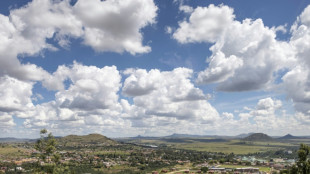
-
 Trump's trade math baffles economists
Trump's trade math baffles economists
-
Gaza heritage and destruction on display in Paris
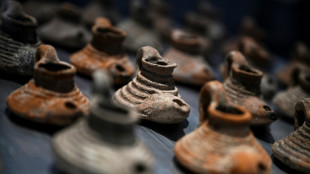
-
 'Unprecedented crisis' in Africa healthcare: report
'Unprecedented crisis' in Africa healthcare: report
-
Pogacar gunning for blood and thunder in Tour of Flanders

-
 Macron calls for suspension of investment in US until tariffs clarified
Macron calls for suspension of investment in US until tariffs clarified
-
Wall St leads rout as world reels from Trump tariffs

-
 Mullins gets perfect National boost with remarkable four-timer
Mullins gets perfect National boost with remarkable four-timer
-
Trump tariffs hammer global stocks, dollar and oil

-
 Authors hold London protest against Meta for 'stealing' work to train AI
Authors hold London protest against Meta for 'stealing' work to train AI
-
Tate Modern gifted 'extraordinary' work by US artist Joan Mitchell

-
 Mexico president welcomes being left off Trump's new tariffs list
Mexico president welcomes being left off Trump's new tariffs list
-
Tonali eager to lead Newcastle back into Champions League

-
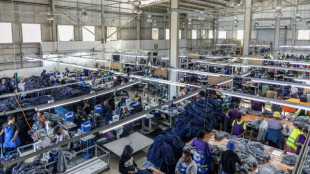 Lesotho hardest hit as new US tariffs rattle Africa
Lesotho hardest hit as new US tariffs rattle Africa
-
Stellantis pausing some Canada, Mexico production over Trump auto tariffs

-
 Rising odds asteroid that briefly threatened Earth will hit Moon
Rising odds asteroid that briefly threatened Earth will hit Moon
-
Italy reels from Brignone broken leg with Winter Olympics looming

-
 Is the Switch 2 worth the price? Reviews are mixed
Is the Switch 2 worth the price? Reviews are mixed
-
Ancelotti’s tax trial wraps up in Spain with prosecutors seeking jail
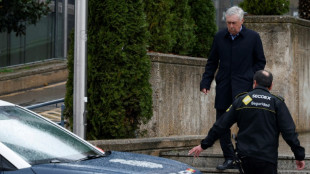
-
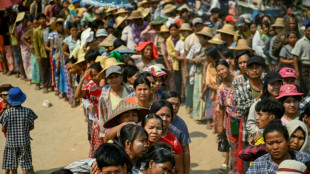 Civilians act to bring aid to Myanmar earthquake victims
Civilians act to bring aid to Myanmar earthquake victims
-
US trade gap narrows in February ahead of bulk of Trump tariffs
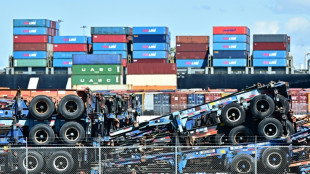
-
 Stocks, dollar and oil sink as gold hits high on Trump tariffs
Stocks, dollar and oil sink as gold hits high on Trump tariffs
-
Countries eye trade talks as Trump tariff blitz roils markets

-
 Arsenal defender Gabriel out for rest of the season
Arsenal defender Gabriel out for rest of the season
-
Trump says US to emerge 'stronger' as markets tumble over tariffs

-
 Wiegman says Belgium games can aid England's women's Euros title defence
Wiegman says Belgium games can aid England's women's Euros title defence
-
Prosecutors demand jail term for Ancelotti for tax fraud
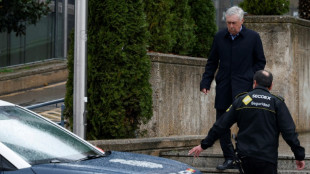
-
 Syria accuses Israel of deadly destabilisation campaign
Syria accuses Israel of deadly destabilisation campaign
-
Skiing World Cup champion Brignone suffers broken leg

-
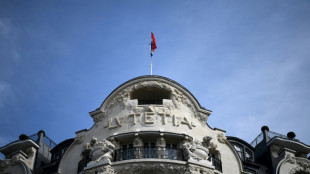 Iconic Paris hotel Lutetia taken over by Mandarin Oriental
Iconic Paris hotel Lutetia taken over by Mandarin Oriental
-
Nepal capital chokes as wildfires rage
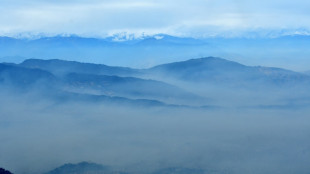
-
 AI could impact 40 percent of jobs worldwide: UN
AI could impact 40 percent of jobs worldwide: UN
-
'Shocking': US tariffs worse than feared for Vietnamese exporters
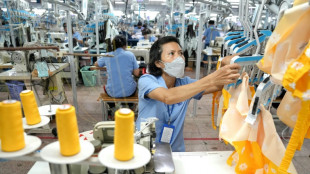
-
 Liverpool's Slot happy to let Premier League title bid take its course
Liverpool's Slot happy to let Premier League title bid take its course
-
USA sole bidder for 2031 Women's World Cup, UK set to host in 2035

-
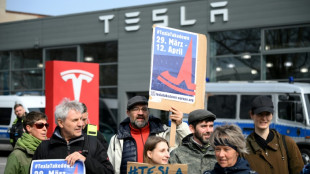 Tesla sales fall again in Germany amid Musk backlash
Tesla sales fall again in Germany amid Musk backlash
-
Italy's skiing champion Brignone air-lifted to hospital after crash
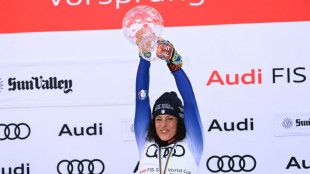
| CMSD | -0.73% | 22.665 | $ | |
| RBGPF | -0.41% | 67.72 | $ | |
| JRI | -1.64% | 12.83 | $ | |
| CMSC | -0.99% | 22.28 | $ | |
| BCC | -7.76% | 94.72 | $ | |
| SCS | -5.91% | 10.82 | $ | |
| RIO | -2.29% | 58.56 | $ | |
| RELX | 0.98% | 51.485 | $ | |
| NGG | 5.41% | 69.54 | $ | |
| BCE | 3.09% | 22.515 | $ | |
| RYCEF | 0.2% | 9.8 | $ | |
| GSK | 3.52% | 39.015 | $ | |
| AZN | 2.6% | 74.145 | $ | |
| VOD | 2.72% | 9.375 | $ | |
| BTI | 4.33% | 42.07 | $ | |
| BP | -7.45% | 31.465 | $ |

Cracked earth in Greece's saffron heartland as drought takes toll
At a field outside Kozani, northern Greece, the strikingly blue-and-purple petals of saffron give off an intoxicating scent that underscores the value of one of the country's most lucrative crops.
But beneath the beautiful flowers, which can fetch five to nine euros ($5.45-9.8) for a single gramme, the earth is cracked and parched after uncommonly long periods of drought, taking a toll on the crop's yield.
"We haven't had a good dose of rain in our area since May," sighed veteran saffron farmer Grigoris Tzidimopoulos.
After the warmest winter and summer since detailed records began in 1960, Greece has now experienced its driest month of October in the last 15 years, according to the national observatory.
"This field used to give us more than a pound (454 grammes) per acre. Last year... from nine acres in all, the yield was three pounds," 68-year-old Tzidimopoulos said.
"Ten or 12 years ago when I sowed, it often snowed. Now we have neither snow nor rain," he added.
- Ancient tradition -
Harvested in Greece for at least 3,600 years -- a saffron picker is even immortalised in a Minoan-era fresco -- the spice is commonly used to flavour rice, chicken and fish but can also be found in cosmetics and pharmaceuticals.
At the local village of Krokos and in about 20 other neighbouring villages in Kozani, the inhabitants have systematically cultivated saffron since the 17th century.
Around 1,000 farmers live from the crop in the area and are intimately familiar with the microclimate that the plant requires order to perform better.
About 5,200 hectares of land (12,800 acres) cultivated here produce the largest quantity of saffron in Europe.
The local Krokos Kozani variety, also known as Greek saffron, enjoys protected designation status at European Union level.
Seventy percent of the product is exported to over 20 countries, with the largest markets being Switzerland and the United States.
And the regional cooperative, set up in 1971, has the exclusive right to collect, package and distribute the product.
Sissy Ioana, 40, has been working the fields for over 10 years and knows from experience whether the upcoming harvest will be a good one.
"Every year the crop is worse," she said, holding up a freshly cut flower to show the red or orange threads that, once dried, make saffron.
- Thinner than hair -
"The flower is not very big. Other years it's three times as big. When you dry it out it will be thinner than hair," she told AFP.
According to local growers, it takes about 50,000 of these red specks to produce 100 grammes of Greek saffron.
The cultivation is particularly labour-intensive as the harvesting to packaging process is all done by hand.
In the 1980s, according to the cooperative, total saffron production in the area was as high as 12 tonnes. Last year it was just over one tonne.
"The annual quantities produced have been decreasing every year," said the cooperative's president, Vassilis Mitsiopoulos.
In 2017, the cooperative produced of 3.8 tonnes of saffron, while last year they barely reached 1.1 tonnes with the same acreage, he said.
"The climate is getting warmer. The rains are erratic through the year and at the wrong time. Snowfall is, I would say, non-existent now."
"All this has resulted in a reduced yield of Kozani saffron," he said.
Climate conditions have changed so dramatically over the last 20 years that olive trees now flourish in Kozani, something unthinkable previously, Mitsiopoulos said.
"If the (saffron) yield continues to be so low I imagine that producers will abandon it or be forced to try to relocate to more northern areas," he said.
J.Williams--AMWN
